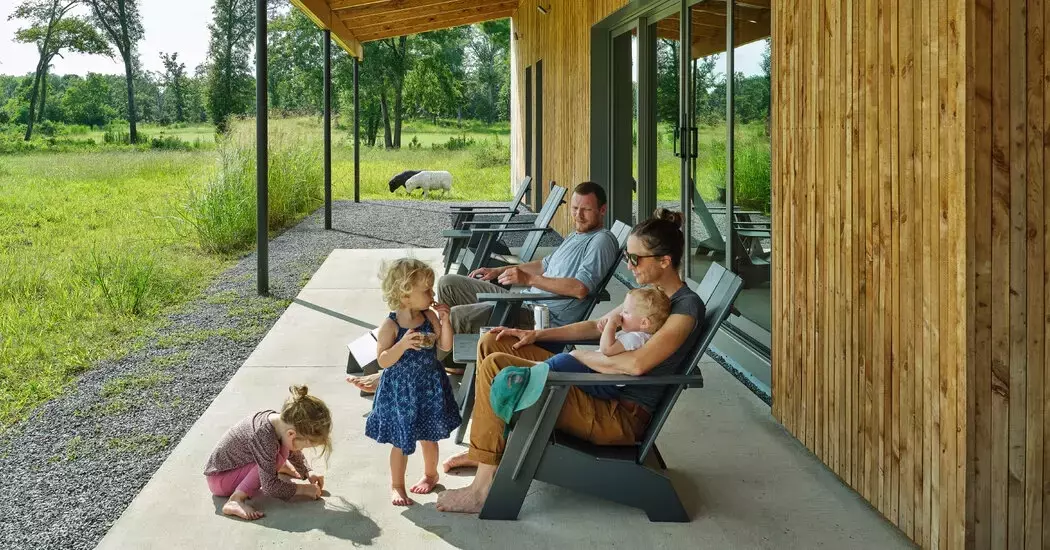
In an inspiring collaboration between friendship, architectural vision, and sustainable design, Joe Filippelli, along with his long-time friend Peyton Coles and Coles' wife Peanut Belk, embarked on constructing a remarkable family home. This project not only showcases the beauty of locally sourced materials but also highlights the enduring bonds formed during their university days at the University of Michigan’s Taubman College. What began as a casual promise made by Peyton Coles during their studies evolved into a tangible reality when Coles contacted Filippelli after he established his own architecture firm, North House Architects, in 2020. The couple, now residing on Wild Hope Farm in Chester, South Carolina, sought to build a house that would harmoniously blend with the agrarian landscape.
Back in 2013, while still students, Peyton Coles humorously promised Joe Filippelli the opportunity to design his future home. Little did they know this jest would become a cornerstone of their professional paths. After graduation, Coles transitioned from architecture to agricultural technology, influenced by his upbringing on a Virginia farm. Meanwhile, Filippelli pursued his passion for designing structures deeply rooted in their surroundings. When Coles reached out in early 2020, it marked the beginning of a journey to create a dwelling inspired by traditional Amish pole barns and tobacco drying sheds.
The chosen site for this unique residence is a portion of Wild Hope Farm, where Peanut Belk manages an organic produce and flower operation. With the purchase of a 28-acre parcel from Belk's parents, the couple set the stage for constructing a home that embodies both their personal values and the natural environment. Filippelli meticulously incorporated local materials into every aspect of the design, ensuring the structure resonates with its rural setting.
Through this project, Filippelli demonstrated how thoughtful design can elevate the essence of place. By drawing inspiration from regional agricultural buildings, the house stands as a testament to sustainable practices and the importance of utilizing nearby resources. Each material choice reflects consideration for environmental impact and aesthetic appeal, creating a harmonious relationship between the home and its surroundings.
This collaborative effort resulted in more than just a physical space; it symbolizes the convergence of old traditions and modern sensibilities. As residents of Wild Hope Farm, Peyton Coles and Peanut Belk now enjoy a home that mirrors their commitment to sustainability and community. Their story illustrates how meaningful connections forged in academic settings can lead to extraordinary outcomes, blending creativity, functionality, and respect for nature in one cohesive package.
